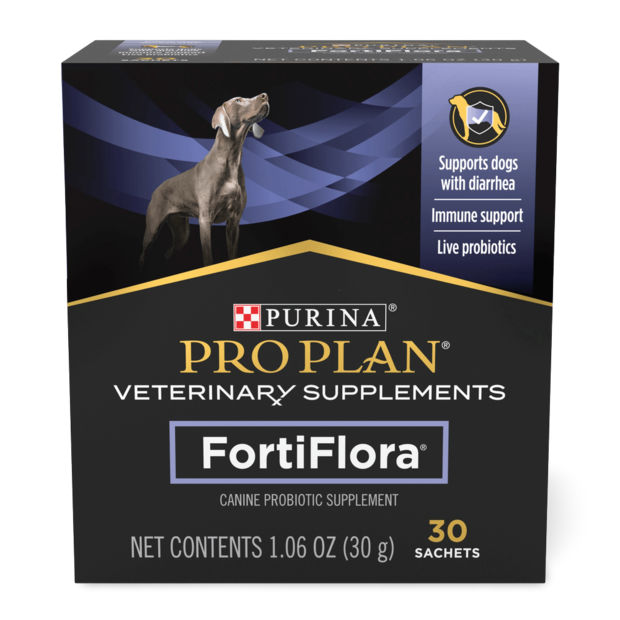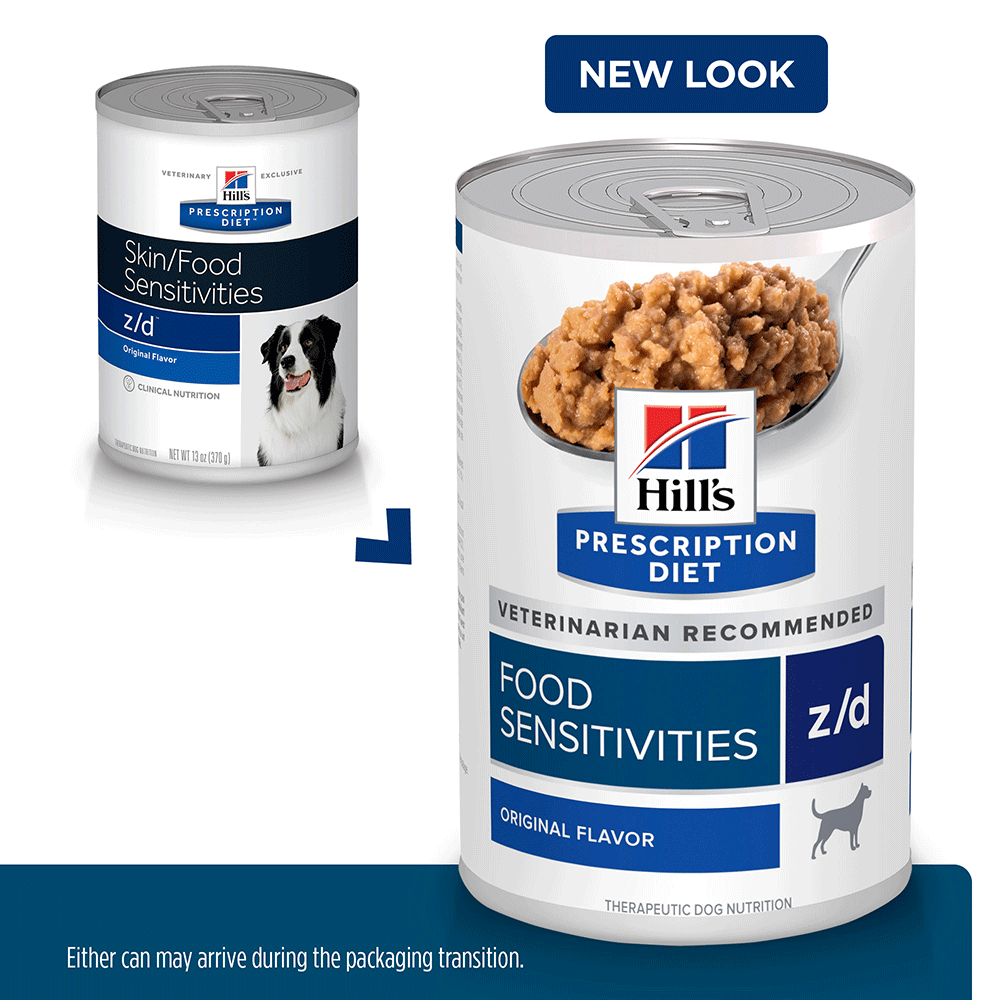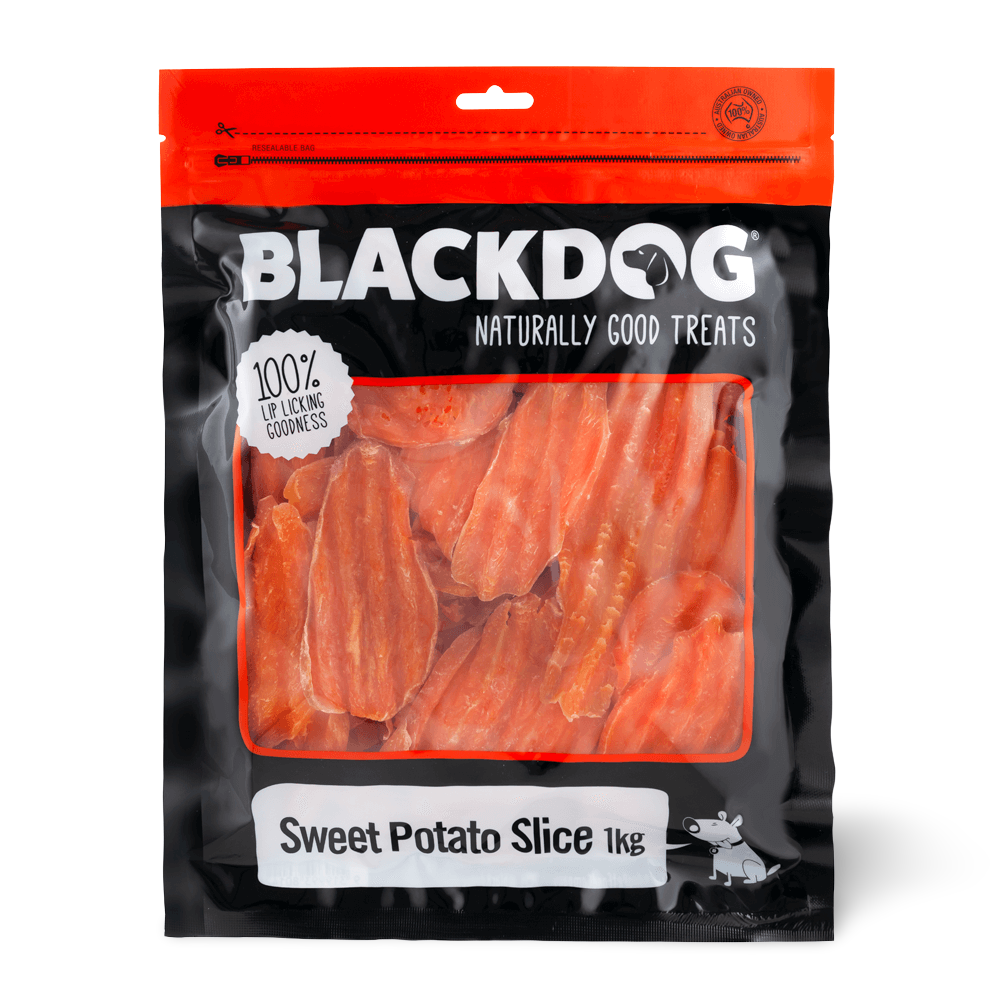Best Sensitive Stomach Diet for Dogs and Cats
This article is written by Pet Circle veterinarian,
Does your pet suffer from a sensitive tummy? Digestive issues, are among the most common reasons that cats and dogs are seen by the veterinarian. While acute bouts of vomiting or diarrhoea can be a medical emergency, chronic mild or occasional digestive issues often require a different approach, with many of these pets suffering from a sensitive stomach.
Pets that suffer from a sensitive stomach can cause owners a lot of concern and frustration, trying to get to the bottom of their pets repeated gastrointestinal episodes. trying to find an appropriate diet to feed their pet without causing a "flare-up". Our vets have outlined the common causes of sensitive stomachs in pets, the best food to support their digestion and treats that are mild on the tummy.
Contents:
- What are the Symptoms of a Sensitive Stomach?
- What Causes a Sensitive Stomach?
- Diet Recommendations for Dogs and Cats with Sensitive Stomachs
- Best Treats for a Sensitive Stomach
What are the Symptoms of a Sensitive Stomach in Dogs and Cats?

A sensitive stomach describes a pet who's digestion is easily upset. While every pet may experience an upset tummy from time to time, pets with sensitive tummies tend to be prone to repeated digestive upsets, which can present in a number of ways.
- Loose stool and diarrhoea
- Gas
- Lack of appetite
- Occasional vomiting
- Discoloured stool
Some Common Symptoms include:
Every pet's belly is different. Some pets with a sensitive stomach may experience 'on and off' bouts of chronic mild loose stools or gas, while other may experience less frequent but more severe instances with vomiting. Your pet may experience small bouts of tummy upsets in response to a rich treat and quickly improve, while others can become seriously unwell.
If gastrointestinal issues such as diarrhoea continue for an ongoing period, it is important to have your pet assessed by a veterinarian. Gastrointestinal issues can lead to weight loss, dehydration, and electrolyte depletion, especially in puppies and kittens.
When to see your veterinarian:
What Causes a Sensitive Stomach in Dogs and Cats?
1. The Wrong Diet

A common cause of a sensitive stomach in pets can be poor nutrition. Poor quality, cheap diets are made from low quality ingredients and are harder to digest. This can lead to chronic digestive issues - particularly 'landmine' sloppy stools and excessive gas!
A sudden change in diet can be known to cause digestive upsets. Because of this reason, it is always a good idea to introduce a new diet to your pet slowly. Feeding your pet a Rotational Diet from a young age, can help prime their belly at a young age and decrease their sensitivity to diet change. Rotational diets may even be associated with a decrease in food allergies occurring later in life.
Looking for more information on Rotational Diets? Read our veterinary written articles Rotational Diets for Dogs and Rotational Diets for Cats
2. Parasites

Parasites such as intestinal worms and protozoa can be a causes of gastrointestinal issues in cats and dogs. While most species usually cause acute symptoms - such as bloody stool, vomiting, or watery diarrhoea - there are some parasites which may cause general weight loss and ongoing mild gastrointestinal signs. To rule out parasites, always keep your pet's parasite prevention up to date and see your veterinarian if you are concerned.
Did you know that most all-in-one preventative products do not cover for tapeworms and an additional wormer is required. For more information on parasite prevention and to ensure your pet is covered for everything, see our veterinary written articles Flea, Tick and Worming Guide for Dogs and Flea, Tick and Worming Guide for Cats
3. Bacterial Contamination

Your pet may have a sensitive tummy secondary to an overgrowth of harmful bacteria in their gut. This can occur after an initial bout of food poisoning from eating something they shouldn't have, or from other 'bad habits' - such as hunting, eating dead animals or wild animal faeces.
Feeding a diet of raw meat or bones, can cause tummy upsets in some animals as well as posing a health risk to owners. A study by the FDA found that raw pet food can contain harmful bacteria such as Listeria and Salmonella which can spread from your pet to your family. This is a particularly dangerous for anyone immunosuppressed in the household such as pregnant women, children, or the elderly.
For more information on Raw Diets read our veterinary written article Should I Feed My Pet a Raw Diet?.
4. Antibiotic Treatment

A chronically sensitive stomach can sometimes occur after a course of antibiotics, particularly if your pet was treated early in life. Antibiotics, although necessary to treat infection, can disrupt the beneficial bacteria in the gastrointestinal tract, which can lead to digestive issues. The right balance of good bacteria in the gut plays an important role in digestive health.
During or after a course of antibiotics, a probiotic supplement can be beneficial to help boost your pets digestive health. Probiotic supplements are also a great addition for any pet that suffers from digestive issues.
For more information on probiotic supplements for pets, see our veterinary written article: Discover Probiotics or Improve Your Pet's GI Health Using the Microbiome
5. Food Sensitivities or Allergies

Much like their human owners, dogs and cats can suffer from dietary sensitivities or food intolerances which can result in a sensitive stomach. Food intolerances in pets generally develop over time and can be associated with a range of common ingredients found in many commercially prepared pet foods including chicken, beef, egg, dairy and wheat.
If you suspect that your pet may have a food allergy or intolerance, a consult with your veterinarian is recommended. The veterinarian may recommend feeding a Veterinary Prescription Hypoallergenic Diet and doing an elimination trial to see if there is any improvement in your pets symptoms.
For more information on Hypoallergenic Diets, read our veterinary written article What is the best Hypoallergenic Dog Food?
6. Other Medical Conditions

Medical conditions of other organ systems may also cause your pet to suffer from chronic gastrointestinal issues. Particularly, pancreatitis, Inflammatory Bowel Disease (IBD), and disorders of the liver or adrenal glands can commonly be seen to cause gastrointestinal issues in dogs. In cats, more common culprits include kidney disease, hyperthyroidism, and stress and anxiety.
Often times if your pet has experienced a gastrointestinal issue in the past which resolved, they may forever be left with a sensitive tummy and never be able to tolerate rich foods or sudden changes to their diet. This is a common consequence of pancreatitis, which can leave dogs incredibly sensitive to fat.
What is the Best Diet for a Sensitive Stomach?

Dietary therapy is crucial for the effective management of a sensitive stomach, both in the short and long term. For pets with a food sensitivity or allergy, the primary goal is to feed them a hypoallergenic diet free from the causal allergens. For pets with other digestive issues the primary goal is provide a diet with restricted fat and easily digestible ingredients.
In general, there are three major categories of pet food that may help your pet with their sensitive stomach: Veterinary Prescription Diets, Therapeutic Gastrointestinal Diets or Novel Protein Diets.
1. Veterinary Prescription Diets
Veterinary Prescription Diets are the gold standard for treating severe or acute cases of gastrointestinal issues, and may be used long term to reduce the recurrence of chronic medical conditions such as pancreatitis.
How do they work? Veterinary prescription gastrointestinal diets typically contain highly digestible proteins, a low fat content and an ideal blend of soluble and insoluble fibre to help your pet recover from gastrointestinal illness. They usually also have high levels of electrolytes, B vitamins, and antioxidants to support your pet's immune system. These diets have been formulated under pharmaceutical grade conditions, which means that the manufacturer has undertaken extra processing steps to ensure optimal nutrition.
Please note: Diets from this category are Veterinary-prescribed only, and should be used under the direction from your vet.
Hypoallergenic Veterinary Prescription Diets are recommended for pets that suffer from food intolerances or are undergoing a food elimination trial. A food elimination trial involves feeding your pet nothing but the hydrolysed diet for a few weeks, and then introducing one new protein every week to 'test' whether they react. In some cases, a hydrolysed diet may be fed long term if a pet is found to be overly sensitive and the diet is the only thing that gives them relief.
How do they work? Hydrolysed diets typically contain protein that has undergone a process called 'hydrolysation' - this is where the protein is broken down into smaller pieces that are unlikely to trigger an immune reaction.
Please note: Diets from this category are Veterinary-prescribed only, and should be used under the direction from your vet.
2. Therapeutic Gastrointestinal Diets
Therapeutic Gastrointestinal Diets refers to those commercial diets which are available at a retail level, without a vet prescription, but are still formulated for the purpose of providing extra digestive support. Generally these are considered to be highly digestible 'everyday' diets.
These digestive care diets are perfect for pets who have mild but persistent stomach issues such as gas, occasional loose stools, and general sensitivities. Not sure about whether your pet needs a prescription or a therapeutic diet? Learn more about the difference between retail and prescription pet diets.
How do they work? Therapeutic 'Sensitive Stomach' diets are formulated with highly digestible proteins to reduce dietary upsets and dietary fibres to help nourish gut bacteria. They are high in antioxidants and Omega 3 fatty acids (including EPA and DHA), which have a proven anti-inflammatory effect.
3. Novel Protein Diets
A novel protein is a protein source that an individual has never been fed before. For our pets, this includes all protein sources that they have been exposed to from the time they were weaned as a puppy or kitten.
Feeding a novel protein diet can be a good hypoallergenic option, and helpful for pets that suffer from allergies or food sensitivities. Choosing an appropriate novel protein diet may be a matter of trial and error, as different diets and protein sources may be suitable for different pets. One animal's allergy trigger, say beef, may in fact be another animal's hypoallergenic diet.
Some widely used novel protein sources include venison, fish, duck and kangaroo. More exotic novel protein sources include insect, goat and bison and even possum.
Looking for more information on the benefits of Novel Protein Diets? Read our veterinary written articles Novel Protein Diets.
Best Treats for a Sensitive Stomach

Our pets love treats, and we love rewarding them. There are a wide variety of treats available for dogs and cats that are mild on the tummy, are suitable for pets that suffer from sensitivities, or just as a delicious snack!
Further Reading
Want to know more? Check out our Discover Page for more tips on keeping your pets happy and healthy.























































